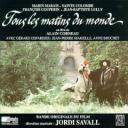I’ve been thinking for several days now about what I could say about Pete Seeger that hasn’t already been said, seen, or heard. Certainly it is impossible to overstate his influence on my generation. “How to Play the Five String Banjo” – both the tattered red music book and ten-inch LP from 1954- were as ubiquitous in the households of my youth as the Glenn Gould Goldbergs, the Ormandy “Messiah” recording with the Mormon Tabernacle Choir, and Kind of Blue, if not more so. His was the first concert I ever attended in my life…in the glorious trappings of a school gymnasium in Acton, (or was it Maynard? or Harvard?) Mass. in 1963. As part of the concert Pete led a singalong of “Froggy Went a Courting” just for us wee ones, and I remember it to this day. (And was totally tickled when Springsteen chose it for his tribute album The Seeger Sessions.)
I’m certain it was the first time I had ever been invited to sing in my life. And decades later I joined the decidedly nonexclusive club of folks who have produced programs about Pete’s remarkable life.
But none of that is particularly new, unique nor noteworthy. What might be, however, is the saga of Pete Seeger the public television host: Before finally being “readmitted” to commercial television in the late ’60s, Pete made 39 episodes of a quirky, wonderful, and decidedly low-production-value program called “Pete Seeger’s Rainbow Quest.” Take a look at Episode 1, with Pete talking about his “distrust of this little magic box,” and then going on to teach us all at home how to play along, and join the chorus…











You must be logged in to post a comment.